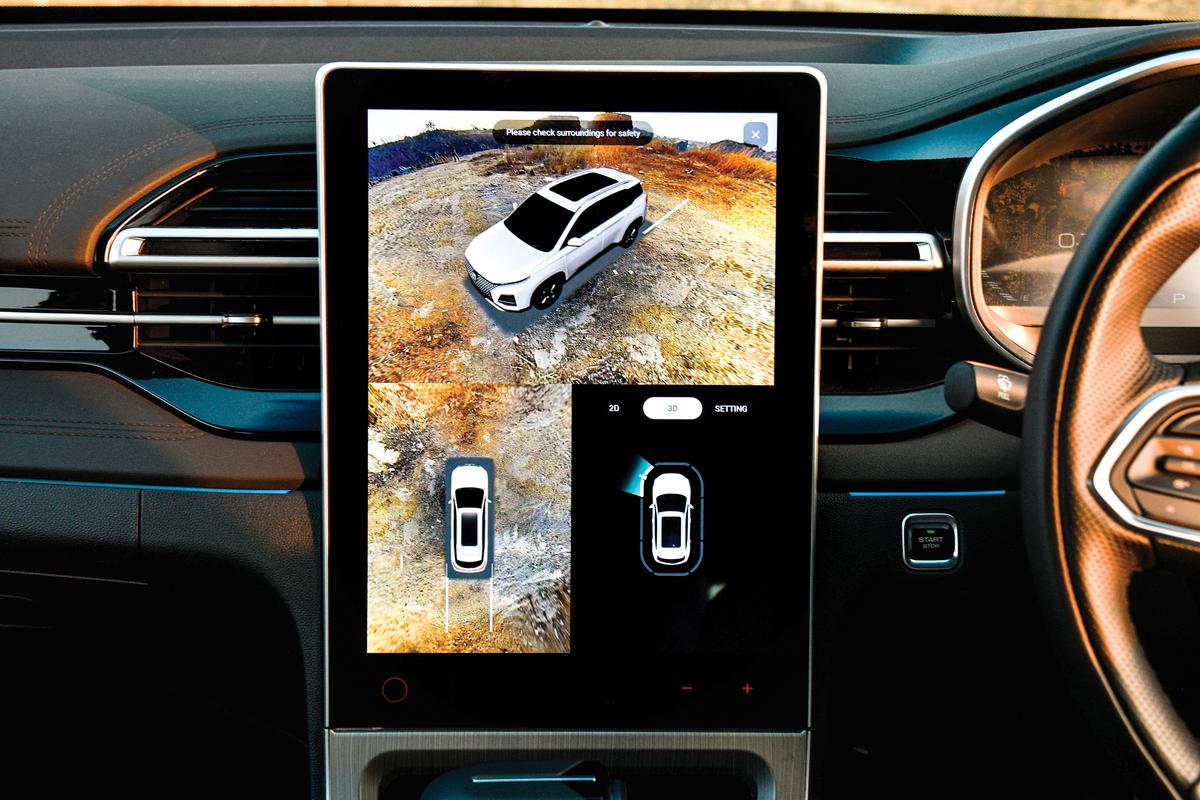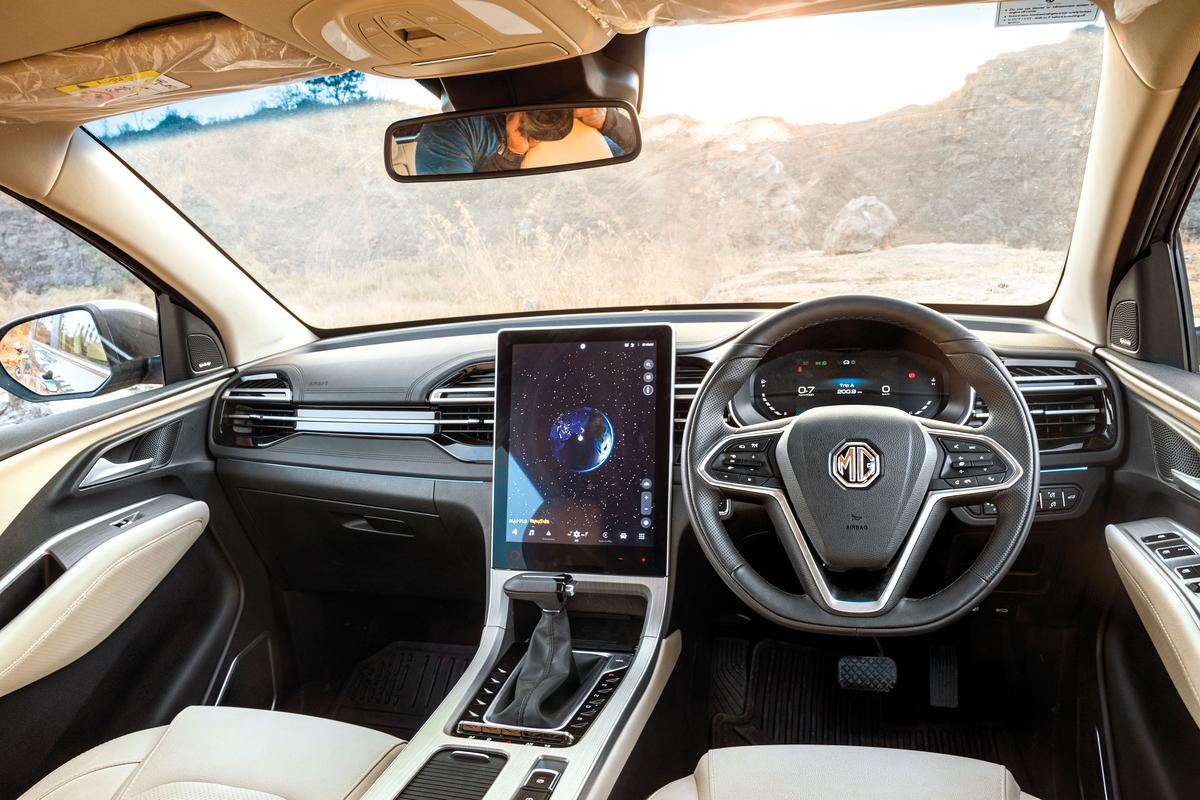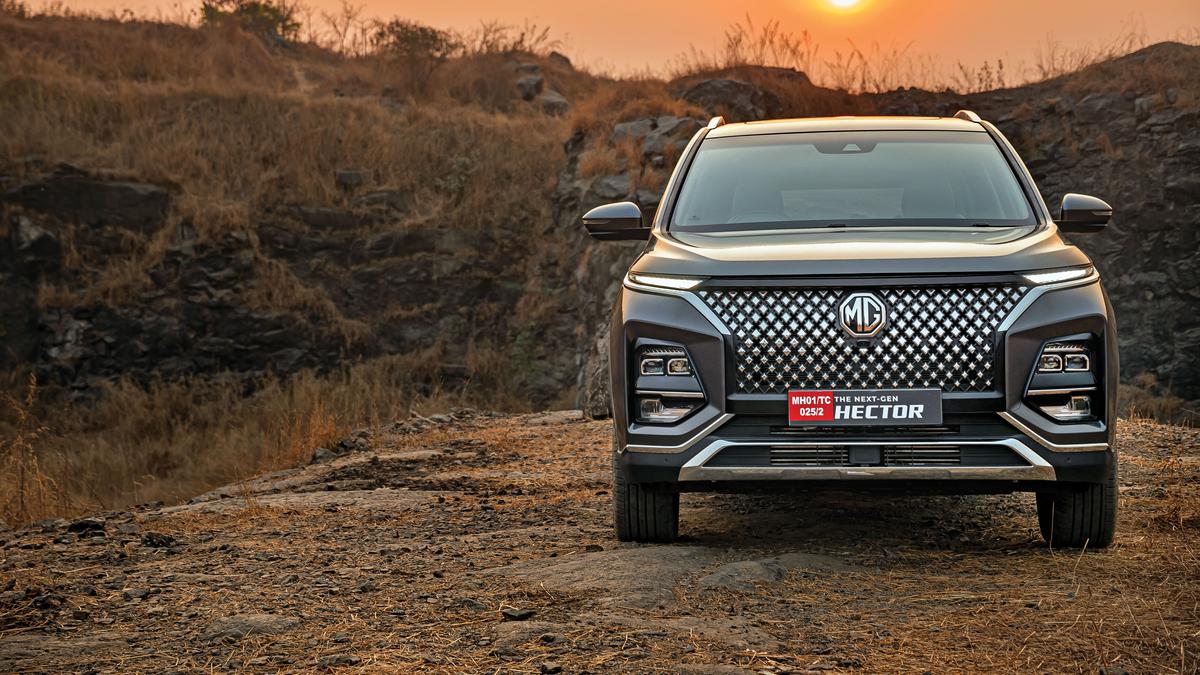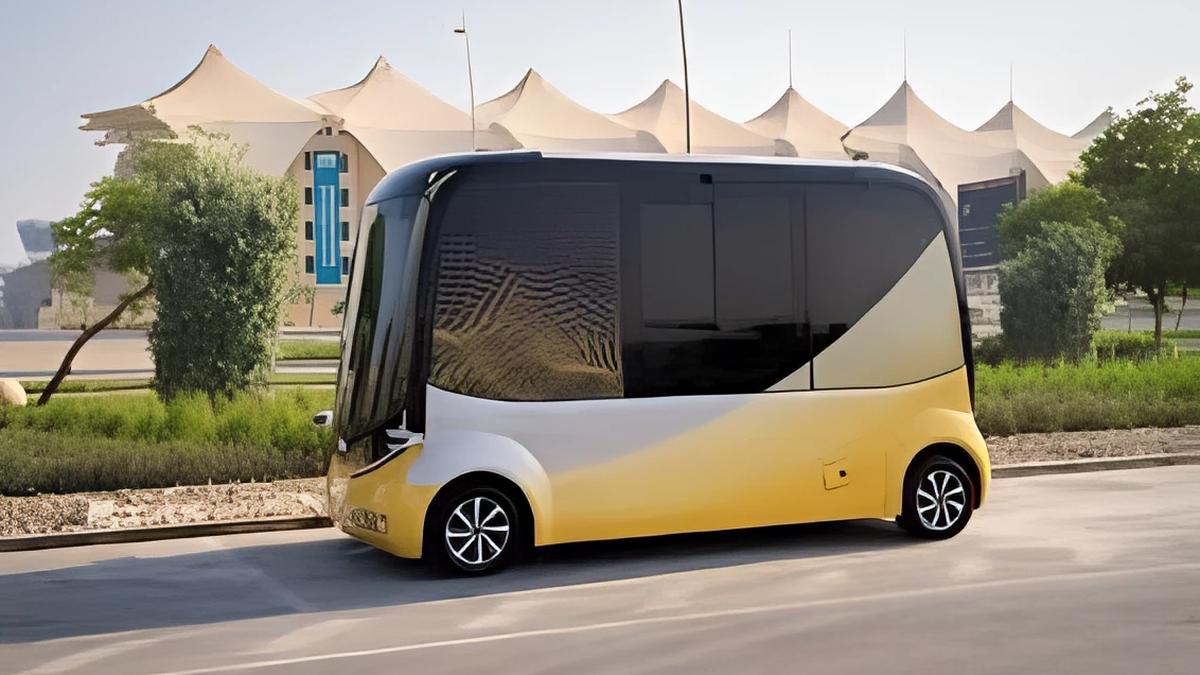The MG Hector has been a strong seller in the midsize SUV segment ever since its launch in 2019. It has since moved ahead with more modern, better-performing and feature-rich SUVs entering the fray. Now, MG gives Hector its biggest update with more features, tech and refreshed looks. Here is a look at what the 2023 MG Hector is like.
The Hector now gets a larger front grille, with diamond-like chrome inserts, which gives it more presence on the road. It retains the split headlight arrangement from the older model, but you now get what MG calls intelligent indicators, which turn on — if you have not already done so — when you turn the steering more than 30 degrees in either direction.
Along the sides, it gets the same 18-inch alloys with a dual-tone finish and a chrome garnish on the window line. MG has made changes to the rear though, with the Hector now getting LED lighting elements that connect the tail-lamps on either end. The Hector badging is also now more prominent and lower down on the tailgate, while the ‘Internet Inside’ badge on the older model has made way for an ADAS badge.
It is on the inside where the new MG Hector takes things to a whole new level. While the 10.4-inch touchscreen of the older Hector was one of its highlights, this new one gets a massive 14-inch unit. The unit itself marks a big step up from the previous one, as it feels slicker to use and has better resolution. It still is not tablet-like slick, but the response time is much better and it is not as laggy as the previous one.
The touchscreen packs in a whole host of features and it is even used to control some functions of the SUV. The unit gets wireless Android Auto/Apple CarPlay compatibility and it can be used to open/close the sunroof, adjust the ambient lighting and control the HVAC system. However, operating the AC controls on the move remains a cumbersome process, as you have to take your eyes off the road to do so.
Thankfully, another new feature addition does help alleviate this issue. The Hector now gets the MG Assistant, which debuted in the Astor and works via a set of voice commands to carry out functions such as operating the sunroof, adjusting the AC temperature and fan speed, changing ambient light shades and more.

MG has also redone the dashboard layout to accommodate the larger screen. The AC vents have been repositioned and they are now a bit smaller than before. You also get soft touch material on the dash top, which feels quite premium. The centre console is also new, with a new gear lever and there are more physical buttons to control some key functions. Also part of the package is a new fully digital instrument cluster.
The electrically adjustable front seats feature ventilation and are large and supportive, but the lumbar support is excessive and it is not adjustable either. There have been no changes in the rear seat of the Hector, but that is not a bad thing. You still get the wide seat, which easily accommodates three adults and you can recline the seat rest for better comfort.
There is ample leg and headroom for even six-footers and the flat floor makes it comfortable for centre passengers too. Rear seat occupants also get a centre armrest and dedicated AC vents. The light beige upholstery also does wonders in lending this cabin an airy feel, but it will be hard to keep clean. Overall, the cabin feels more premium than before as quality has taken a step up, with nicer materials and better fit and finish.
Other features of note on the top-spec Hector facelift include auto headlamps and wipers, powered tailgate, panoramic sunroof, wireless charger, MG’s i-Smart connected car tech, an Infinity audio system, leatherette upholstery and a PM 2.5 air purifier. Safety kit on the Hector Savvy includes six airbags, a 360-degree camera with a 3D mode, TPMS, ESC, traction control and front and rear parking sensors.
A big addition to the Hector facelift’s already expansive equipment list is the ADAS tech, which brings in features such as adaptive cruise control, forward collision warning, lane-keeping assist and autonomous emergency bracing. We did test the adaptive cruise control and the lane-keeping assist on our drive, and the system managed to keep the SUV well within the lane while maintaining a safe distance from the car in front. It was only when we encountered a poorly marked stretch of road that the system disengaged.
Other ADAS features include bend cruise assistance, which — when cruise control is activated — adjusts the vehicle’s speed when it encounters a curve; and Traffic Jam Assist, which, when activated, helps the SUV creep along in slow-moving traffic.
With this update, MG has dropped the 1.5-litre petrol mild-hybrid powertrain from the range, so your choice is now limited to a 2.0-litre turbo-diesel or a 1.5-litre turbo-petrol. We tested the 1.5-litre turbo-petrol, which puts out 143hp and 250Nm, paired with an 8-step CVT automatic transmission.
On the move, the Hector facelift feels identical to the older model. This turbo petrol-CVT is responsive off the line and is quite effortless to drive in general. While the CVT does a good job keeping the engine in the optimal rev band, you can still feel some of the turbo lag, especially when you drive with a heavy foot. And when you do drive in a spirited manner, the gearbox exhibits the typical rubber band effect associated with CVTs.

The Hector facelift comes with three drive modes — Normal, Eco and Sport — but the difference in performance between the modes is barely perceptible. Only during part-throttle inputs will you feel the difference between them.
In our performance tests, it did the 0-100kph dash in 11.9s in Sport, 11.94s in Normal and 12.28s in Eco. As for roll-on acceleration, the 20-80kph run is dispatched in 6.7s in Sport, 7s in Normal and 7.47s in Eco. In terms of fuel efficiency, the Hector petrol-CVT returned 8.3kpl in the city and 9.6kpl on the highway, while being driven in Eco mode on our test cycles.
The Hector is not the enthusiast’s choice of SUV. Owing to its soft suspension set-up, it tends to roll a fair bit when you take corners at speed and the steering is not feelsome either.
Hector facelift continues to get disc brakes all around, which do a good job of slowing down this SUV. There is a strong and confident bite initially followed by progressive stopping power.
Priced from ₹14.73 lakh to ₹21.73 lakh (ex-showroom, India), the Hector facelift continues to rival midsize SUVs like the Tata Harrier, 5-seat version of the Mahindra XUV700, Hyundai Creta, Kia Seltos, Volkswagen Taigun, Skoda Kushaq, Maruti Suzuki Grand Vitara and Toyota Urban Cruiser Hyryder.
The Hector facelift takes all the strong points of the outgoing model and builds further on them. It remains a spacious and comfortable SUV and now feels more premium and packs in even more gizmos to wow you. Sure, it is not engaging to drive and the turbo-petrol engine is on the thristy side, but if you just want a refined SUV which also offers comfort, the Hector facelift is hard to beat.








